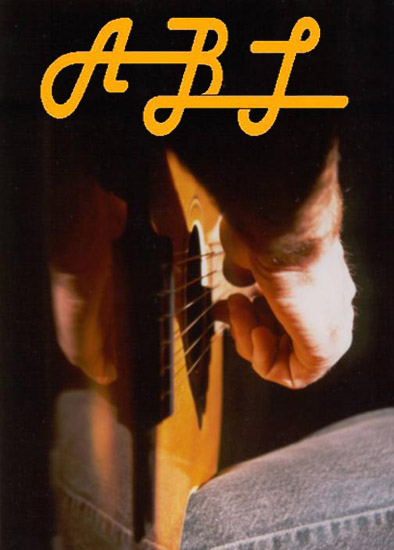|
Column Archive |
||
April, 2010 |
"The Age of Songwriters" |
by Webmaster |
|
One night last month, I went with friends to hear two young local singer-songwriters. I'd had a late night, followed by an early morning and a hectic day which included my own gig that afternoon. I was a long way past tired. The first songwriter, a woman, seemed to pick a word out, then write a song centered on that word. The thoughts and phrases listed her feelings. I quickly grew bored and zoned out in each song. Near the end of her set, she sang a song about her grandmother, which showed you who that woman was in the specific details. It was a wonderful song. The second songwriter, a man, had a great rhythmic groove, which didn't always fit the words he was singing. He did demonstrate an occassional clever turn of phrase. Once again, I found the lists of feelings disjointed and, ultimately, boring. Again, I zoned out until he sang a song about his grandfather. In that song, he seemed to get inside the mind of his grandfather and demonstrated some unexpected (by then) depth of understanding. It was a wonderful song. After the show, I discussed this with my friends. One said, "The songs were all the same. It's like they wrote one song and sang it over and over." Another said, "There were no stories in the songs." We all agreed that the only "good" songs were the two songs about grandparents. Now, I'm not going to blame that conclusion on our ages. Do we relate more to songs about people our age? Definitely. Have we learned some lessons along the way? Definitely. Did we expect that same depth of experience from these two young people? Definitely. Was that realistic? No, probably not. As I told my friends, "They want to be songwriters, but they have nothing to say." They don't have any of their own stories yet. And, they haven't learned what those stories mean.
So, somehow, a songwriter needs to hang on to that youthful intensity while developing a depth of understanding based on experience. Occam's razor? Well, I like a good paradox. Is it possible to to remain emotionally adolescent while learning from one's experiences? If so, is that what is meant by "artistic temperament"? At least these two songwriters were able to put themselves in or close to the mind set of someone they know well and love, to borrow that depth of experience. The young woman even mentioned that she'd gone to Mississippi to find and old black man with a dog on his porch to ask him to give her his "legacy." And, she was mature enough to give up the quest after three weeks. My father used to say that there are three types of people in the world: smart people, average people and stupid people. Smart people learn from others’ mistakes. Average people learn from their own mistakes. Stupid people don’t learn from any mistakes. I think we are all of those people some of the time. I know I am. And, I know sometimes I have to learn the hard way. But, no matter how smart we are, how much we learn from watching others, there are some lessons we have to learn for ourselves. That gives us our depth of experience. No one can give you a "legacy" of experience and wisdom. I find myself occassionally in the "pit of despair." It's a cold, dark, lonely well with no way out. Sometimes forcing myself to do something physical (even yardwork) or productive (be it ever so boring) can get me out of it. Sometimes I watch funny movies: laughter therapy. Sometimes I just wallow around, write in my journal, and sleep till I get bored enough to get out of it. Last time I visited the pit, I wrote a song. Aha! A great new way out of the pit! And the song is getting great reception. I can't help comparing what I heard last night ("I'm fragile") with my pit-of-despair song ("She's leaning from a bitter wind"). It isn't just a depth of experience there. It's being able to show how you feel with sensory details. Some call that poetry.
Last night, I heard few words in the songs that evoked sensory details (sight, sound, touch, smell, taste). I've learned that sensory details stay with a listener. If you can see the branches and leaves of the elm tree, smell the flowers on the breeze, feel the sun on your bare arms, scratch the dog behind his floppy ears and taste Mom's fresh-baked apple pie, you don't need to use the word "home" or "homesick". Painting pictures with words lets the listener see and feel what the songwriter is saying. Tying the pictures together with a story line engages the listener. Both give the listener a vivid experience that will be remembered. And, sometimes, a song works if there is no overtly stated story. If there are enough details to draw a picture and engage the listener, the story may be implied or missing altogether. These two songwriters are off to a good start. When they start telling their own stories, by describing a scene in a way that takes the listener with them, and lets the listener in on the secrets they've learned along the way, then they'll be great songwriters. Thanks for visiting AcousticByLines. |
|||
| TOP | |||

